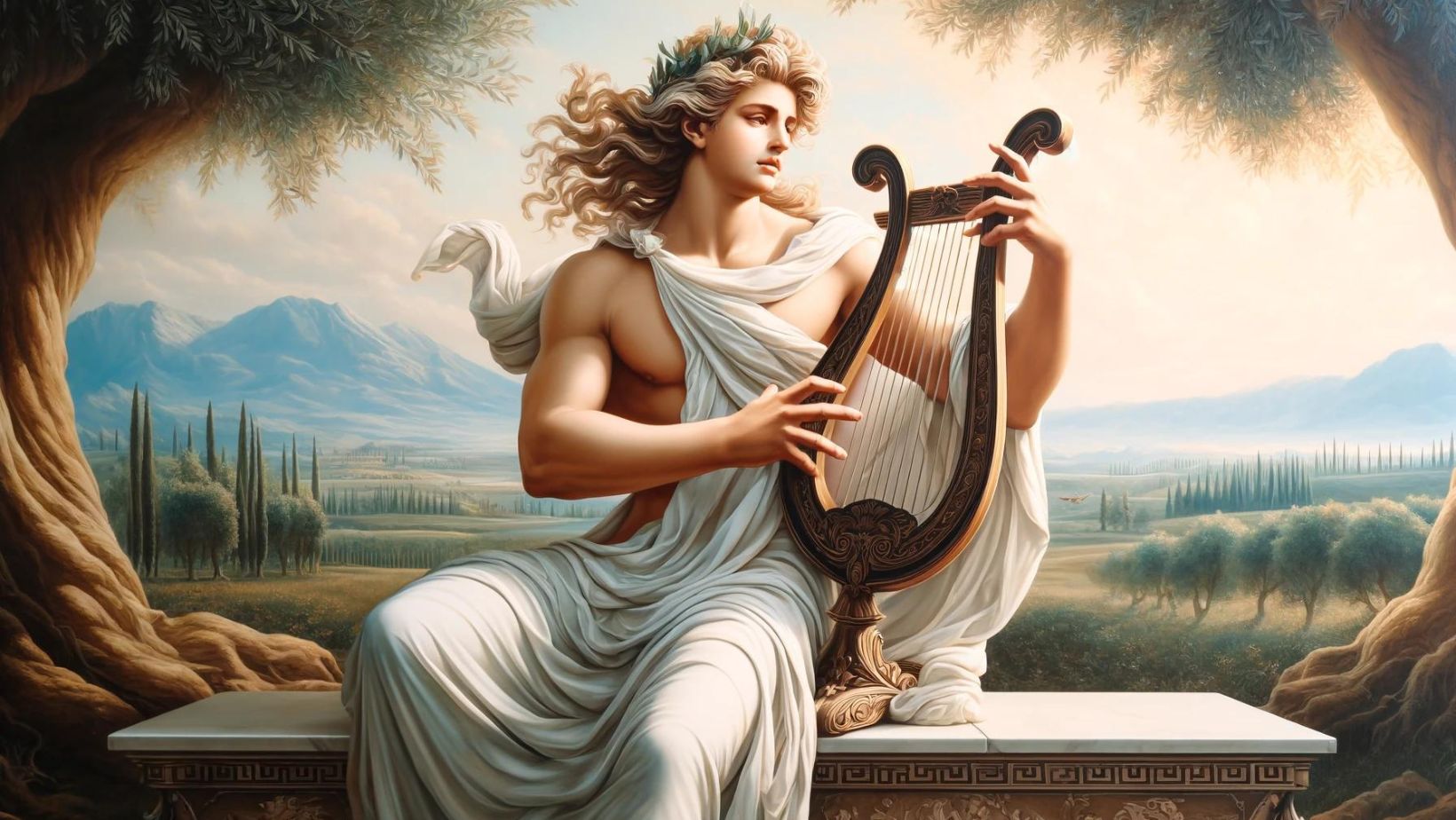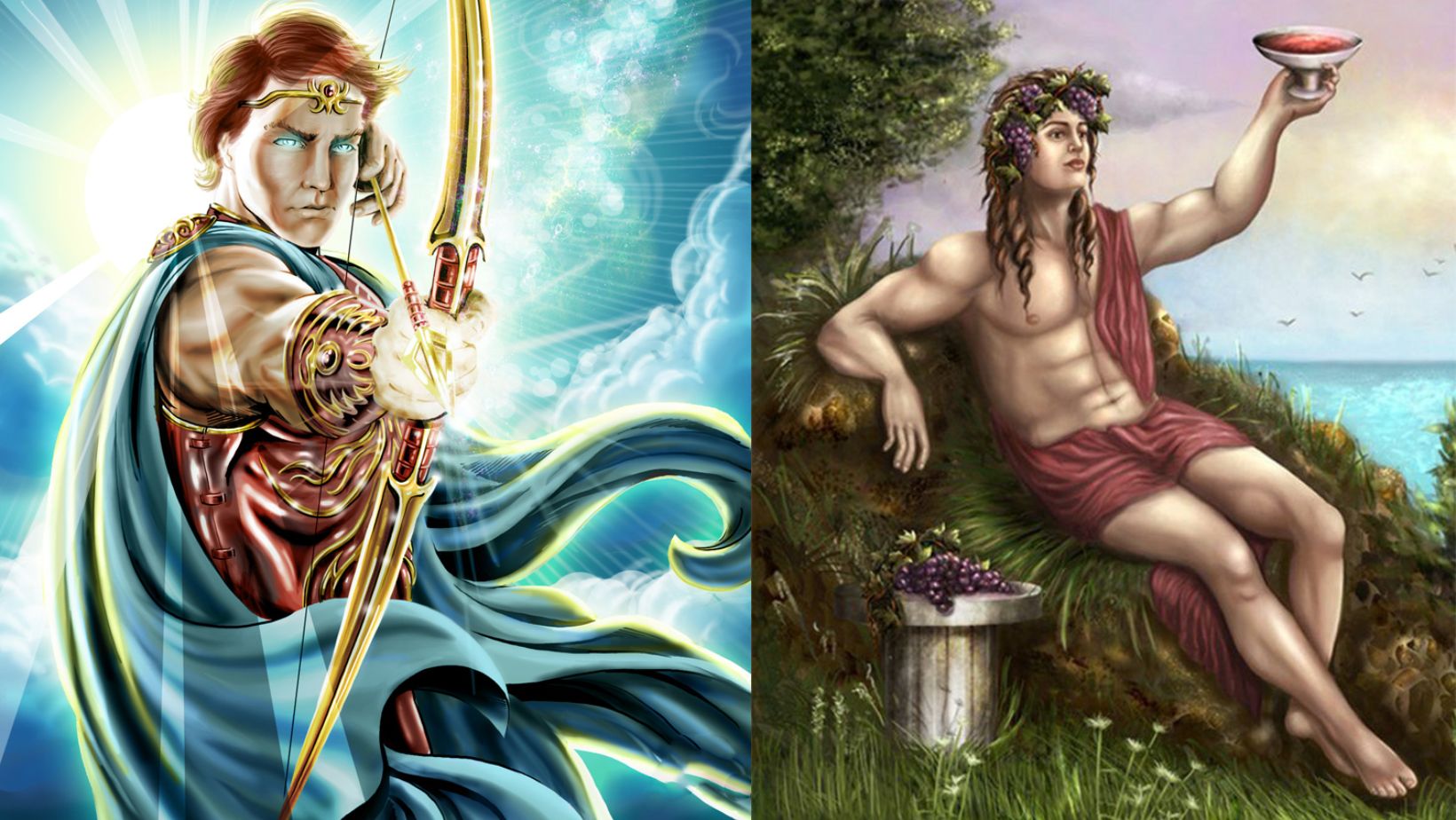Apollo in Literature, the Greek god of music, poetry, and prophecy, has been a source of inspiration for writers since ancient times. His influence can be seen in countless works of literature, from epic poems to contemporary novels.
As one of the most complex and multifaceted deities in the Greek pantheon, Apollo has captured the imaginations of authors and readers alike. His stories of love, loss, and divine intervention have resonated with audiences across the centuries.
In this exploration of Apollo in literature, we’ll trace his enduring legacy and examine how his mythology has been adapted and reinterpreted by writers throughout history. So let’s embark on a journey through the ages and discover the timeless appeal of this fascinating god.
Table of Contents:
- Apollo in Greek Mythology
- Apollo’s Love Affairs and Relationships
- Apollo in Classical Literature
- Apollo as a Symbol and Archetype
- Modern Interpretations and Adaptations
- Conclusion
Apollo in Greek Mythology: Apollo in Literature

Apollo, the Greek god of music, poetry, and prophecy, is one of the most iconic figures in classical mythology. Born on the island of Delos to Leto and Zeus, Apollo was a central figure in the Greek pantheon.
Origins and Family
As the son of Zeus and Leto, Apollo had a complex family tree. His twin sister, Artemis, was the goddess of the hunt. Apollo’s father, Zeus, ruled over the gods from Mount Olympus, while his mother, Leto, was a Titan.
Attributes and Symbols: Apollo in Literature
Apollo was associated with a wide range of attributes and symbols. He was often depicted as a handsome, beardless youth carrying a lyre or a bow. The laurel wreath, a symbol of victory and honor, was sacred to Apollo.
Famous Myths and Legends
One of the most famous myths about Apollo involves his slaying of the Python, a monstrous serpent that guarded the oracle at Delphi. By killing the Python, Apollo established himself as the oracle’s patron god.
Another well-known story tells of Apollo’s musical contest with the satyr Marsyas. When Apollo emerged victorious, he had Marsyas flayed alive for his hubris in challenging a god.
Apollo’s Love Affairs and Relationships: Apollo in Literature
Despite his many admirable qualities, Apollo was not always lucky in love. His romantic pursuits often ended in tragedy or transformation.
Daphne and the Laurel Tree
Perhaps the most famous of Apollo’s love affairs was his pursuit of the nymph Daphne. When Daphne rejected his advances, her father, the river god Peneus, transformed her into a laurel tree. From that day forward, the laurel became Apollo’s sacred plant.
Cassandra and the Curse: Apollo in Literature
Apollo also fell in love with the Trojan princess Cassandra. He granted her the gift of prophecy, but when she spurned his affections, he cursed her so that no one would ever believe her predictions.
Other Lovers and Children
Apollo had many other lovers and children, both mortal and divine. Among his most notable offspring were Asclepius, the god of medicine, and Orpheus, the legendary musician.
Apollo in Classical Literature: Apollo in Literature
As one of the most important gods in the Greek pantheon, Apollo appears frequently in classical literature.
Homer’s Iliad and Odyssey
In Homer’s Iliad, Apollo plays a crucial role in the Trojan War. He sends a plague to the Greek camp and later guides Paris’ arrow to strike Achilles’ heel, leading to the hero’s death.
Greek Tragedies: Apollo in Literature
Apollo is a central figure in many Greek tragedies, such as Aeschylus’ Oresteia trilogy. In these plays, Apollo often serves as a deus ex machina, intervening to resolve conflicts or reveal truths.
Apollo as a Symbol and Archetype: Apollo in Literature

Beyond his role in mythology and literature, Apollo has come to represent certain ideals and archetypes in Western culture.
The Ideal of Male Beauty
With his youthful, athletic physique and beardless face, Apollo became the embodiment of male beauty in ancient Greek art. This ideal has endured throughout the centuries, influencing depictions of male figures in art and literature.
Patron of the Arts: Apollo in Literature
As the god of music and poetry, Apollo has long been associated with the arts. His lyre and his role as the leader of the Muses have made him a symbol of artistic inspiration and achievement.
Embodiment of Reason and Order
In contrast to the wild, emotional nature of gods like Dionysus, Apollo represents reason, order, and moderation. He embodies the Greek ideal of sophrosyne, or self-control, and his influence can be seen in the emphasis on rational thought in Western philosophy.
Modern Interpretations and Adaptations: Apollo in Literature
Apollo’s enduring appeal has ensured his place in modern art, literature, and popular culture.
Apollo in Art and Literature
From the Renaissance to today, Apollo has been a popular subject for artists and writers. He appears in countless paintings, sculptures, poems, and novels, often as a symbol of beauty, creativity, or enlightenment.
Jungian Archetypes: Apollo in Literature
In the 20th century, psychologist Carl Jung identified Apollo as one of the key archetypes in the collective unconscious. The Apollonian archetype represents the rational, ordered side of human nature, in contrast to the Dionysian archetype of emotion and chaos.
Contemporary Retellings: Apollo in Literature
Modern authors and filmmakers continue to find new ways to interpret and adapt the myths of Apollo. From Rick Riordan’s Percy Jackson series to the TV show Battlestar Galactica, Apollo’s presence in popular culture shows no signs of waning.
As one of the most complex and multifaceted figures in Greek mythology, Apollo continues to fascinate and inspire us to this day. His enduring legacy is a testament to the power of myth and the human imagination.
Key Takeaway: Apollo in Literature
Apollo, the Greek god of music and prophecy, remains a key figure in mythology. Known for his complex family ties and many myths, he symbolizes beauty, reason, and artistic inspiration. His influence spans classical literature to modern retellings.
Conclusion: Apollo in Literature
From Homer’s epic tales to Rick Riordan’s modern retellings, Apollo has remained a constant presence in literature. His complex nature, encompassing both light and dark, has provided endless inspiration for writers seeking to explore the human condition.
Through the lens of Apollo’s mythology, we’ve seen how themes of love, loss, and the search for meaning have resonated with readers across time and culture. His stories have been adapted and reimagined, but the core of his character remains unchanged.
As we conclude our exploration of Apollo in literature, it’s clear that his influence shows no signs of waning. As long as writers continue to be drawn to the rich tapestry of Greek mythology, Apollo will be there, inspiring new generations of storytellers and captivating readers with his timeless tales.

